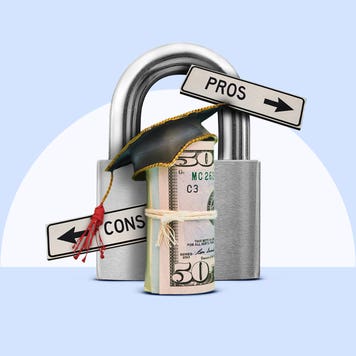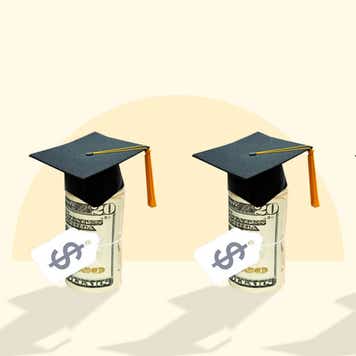Bad-credit student loan refinancing
Refinancing your student loans can help you get a lower interest rate; here’s how.
Get tips and advice on student loans and colleges and compare private student loan lenders.



Learn more about student loans before you apply.
Our expert reporters and editors bring the news and analysis you need—backed by data and firsthand experience.
About Bankrate
Writer and Consumer Lending Analyst

Senior Loans Writer

Senior Loans Writer








We appreciate your feedback
Thank you for taking the time to share your experience.